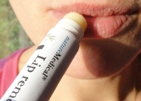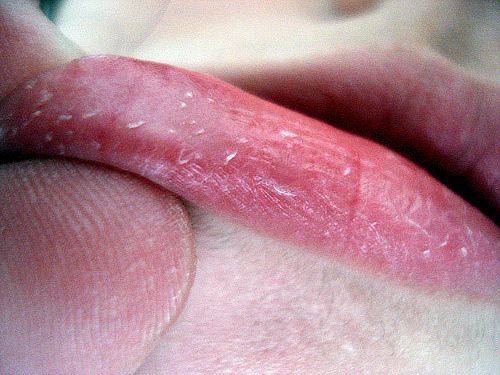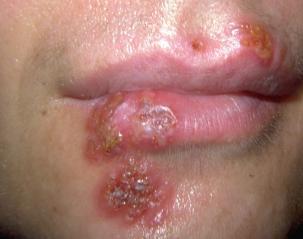|
Chapped lips refer to a common condition in which the lips
become dry, cracked and sore. If marked, this can lead to bleeding and secondary
infection. A number of other factors
contribute to itís
incidence and severity of chapped lips including overexposure to the sun or cold wind,
dehydration particularly associated with alcohol intake. The incidence and
severity of chapped lips significantly increases to over 67% during and after chemotherapy.
Other drugs which cause oral dryness including codeine, opiates, anti
cholinergics and aromatase inhibitors.
Professor Thomas conducted and published a study which showed that people who
regularly used natural based creams during chemotherapy had a better
perceived benefit compared to petroleum based products. This study also observed that patients who had chapped lips
where more likely to develop cold sores. (see full paper
in Focus on Cancer medicine).
Cold sores: A number of infective conditions can
affect the lips including bacteria and fungi, but the most common in the
community, by far, is the herpes simplex virus (HSV). Acute episodes are
characterised by the presence of red, swollen areas on the mucous membrane or
skin, with fluid-filled blisters which can be disfiguring and painful. The
HSV, once caught, lies dormant in the facial nerve ganglion.
Cold sore episodes occur when the HSV migrates down the nerve to the
dermis in and around the lips. Although strategies
to prevent an acute episode have so far been unsuccessful topical or systemic
anti-viral agents such as acyclovir, docosanol, penciclovir or valacyclovir, have been shown to shorten
the length of the attack if used early in an episode.
The
precise triggers for these acute episodes are not certain, but there are
associations with iron deficiency, psychological stress and a history of
aphthous ulcers. The research
study, mentioned above, published in the Journal Focus on Cancer
Medicine, suggests hat
there is a link between chapped lips and cold sores, as 79-82% of patients with
cold sores also suffered from chapped lips, as opposed to 18-21% who did not.
Many advise looking at measuring the levels of micro-nutrients
in the diet if cold sores are common to see if there is an excess or deficiency
in the levelsof essential nutrients which may effect the immunity.
|





